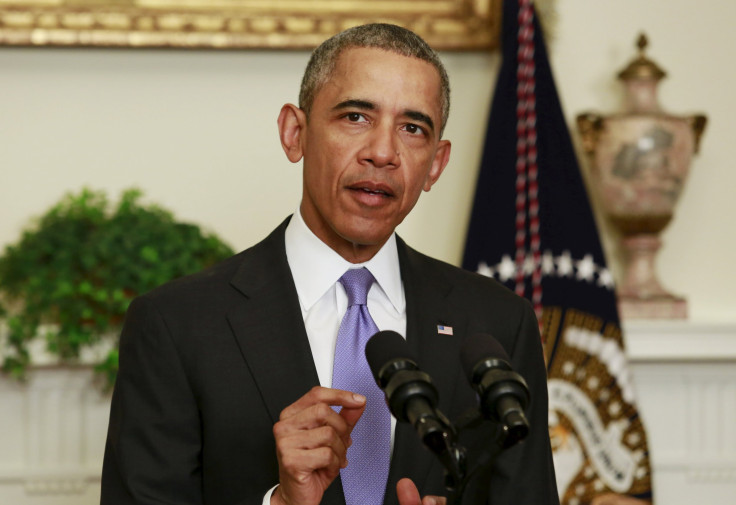
An apparent victory for immigration advocates today as the Supreme Court of the U.S. agrees to reconsider a lawsuit brought by a coalition of Republican-led state against President Obama’s controversial executive actions on immigration. Obama announced two programs, DAPA in 2014 that aimed to give temporary deportation relief and work permits to between 4 and 5 million immigrants in the country illegally. The programs were aimed at low-priority immigration offenders to free up resources for convicted criminals. Immigration activists want to see the programs implemented.
"Voto Latino applauds the Supreme Court for agreeing to give immigrant families their long-awaited day in court,” VL President and CEO María Teresa Kumar said in a statement on Tuesday.
As a political tool, Obama’s executive actions were a response to Republican obstruction of comprehensive immigration reform. A slightly bipartisan 2013 bill was prevented from reaching the floor of the Congress for a vote due obstructionism from Republican leadership in Washington.
Fast-forward to February 2015, when a lawsuit brought by Republican governors gained traction in a Texas district court, freezing Obama’s programs and preventing the largest one, DAPA, from going into effect. Thus began a legal tug-of-war between the Obama administration and immigration advocates on one side, and Republicans and restrictionists on the other.
Today’s announcement by the Supreme Court raises the stakes for the 2016 election, especially for immigration voters on both sides of the issue. Democrats today still approve of Obama’s strategy, and all three Democratic presidential candidates say that they would continue the use of executive actions as a response to failures to enact comprehensive immigration reform.
“Clearly the best form of action is for Congress to pass comprehensive immigration reform to put undocumented people on a path toward citizenship. But if Congress fails to act, as president I would uphold and expand the president's action,” Sen. Bernie Sanders (I-Vt.) said in a statement Tuesday that welcomed the Supreme Court decision.
Yet an apparent win for immigration advocates today could mean a setback if one of their preferred candidates doesn’t win the election.
“If you live by the pen, you die by the pen,” Ted Cruz, who opposes Obama’s executive orders told the Washington Post in an interview last June . “Everything put in place by executive order can be undone by executive order.”
A decision from the Supreme Court could come as early as June.
© 2025 Latin Times. All rights reserved. Do not reproduce without permission.



